The New Show ‘Summer Camp Island’ Will Fill the ‘Adventure Time’-Shaped Hole in Your Life
Cartoon Network has a new show that’s perfectly poised to fill Adventure Time-shaped hole in fans’ hearts when that show airs its final episode in August.
After nearly eight years, the series created by Pendleton “Pen” Ward ceased production in 2017. The team behind one of TV’s most influential and beloved cartoons have moved on, and many followed award-winning short film director, former Adventure Time writer, and Royal College of Art alumna Julia Pott to her new series, Summer Camp Island. Pott is Cartoon Network’s second ever woman to run her own solo TV show, after Steven Universe creator Rebecca Sugar—also an Adventure Time veteran.
Pott’s all-star team includes Adventure Time art director Sandra Lee, writers Ken Osborne and Jack Pendarvis, storyboard artist and songwriter Seo Kim, who also makes comics for VICE, and many more. Pott’s funny, personal show with an affinity for 90s tech preserves not only the artists, but the philosophy behind Adventure Time’s greatness. The similarity is clear from the opening chords of its intro song.
All 20 episodes of Summer Camp Island aired at once in a massive marathon on Cartoon Network last Saturday. It follows a young elephant named Oscar (Elliott Smith) and his best friend, a girl named Hedgehog (Oona Laurence), as they go to sleep-away summer camp for the first time ever. Everything on Summer Camp Island is magical. There are monsters, aliens, ghosts, and the counselors are all witches. Despite using mostly animals and fantasy creatures, Pott takes advantage of her position to create space for characters that are diverse in gender, culture, and identity.
Life is everywhere on Summer Camp Island. Hot dogs, marshmallows, trees, and basketballs have thoughts, feelings, and tiny smiley faces. An object that would be inanimate in any other show can be the center of a whole episode. One story follows the moon, voiced by Cedric the Entertainer, as he explores whether he would be happier if he quit shining in the sky to play the harmonica.
That’s just the tip of the celebrity cameo iceberg, from Elijah Wood as a yeti named Saxophone to a cadre of friendly monsters voiced by Alia Shawkat, Alfred Molina, Mike Birbiglia, and Bobby Moynihan. Richard Kind, the guy from Spin City, is to Summer Camp Island what voice actor Tom Kenny was to Adventure Time, voicing a countless one-off characters in addition to major roles. Pott herself is Susie, the vain and cruel, yet endearing, pink-haired witch who runs the summer camp.
Like Adventure Time and Ward’s current project, Bravest Warriors, the foundation of Summer Camp Island is emotional intelligence. It’s inspired by Pott’s friendship with Tom Brown, an animator known for unsettling short films like Teeth. Brown and Pott bonded after they both moved to New York City from London. As young artists, the boroughs were as full of magic and possibilities as the enchanted summer camp in Pott’s new show, which she produced in LA.
We talked to Pott about working on Adventure Time, being a woman in the male-dominated animation industry, and making a kid-friendly show that’s both smart about representation and enjoyable for adults. The following has been edited for length and clarity.
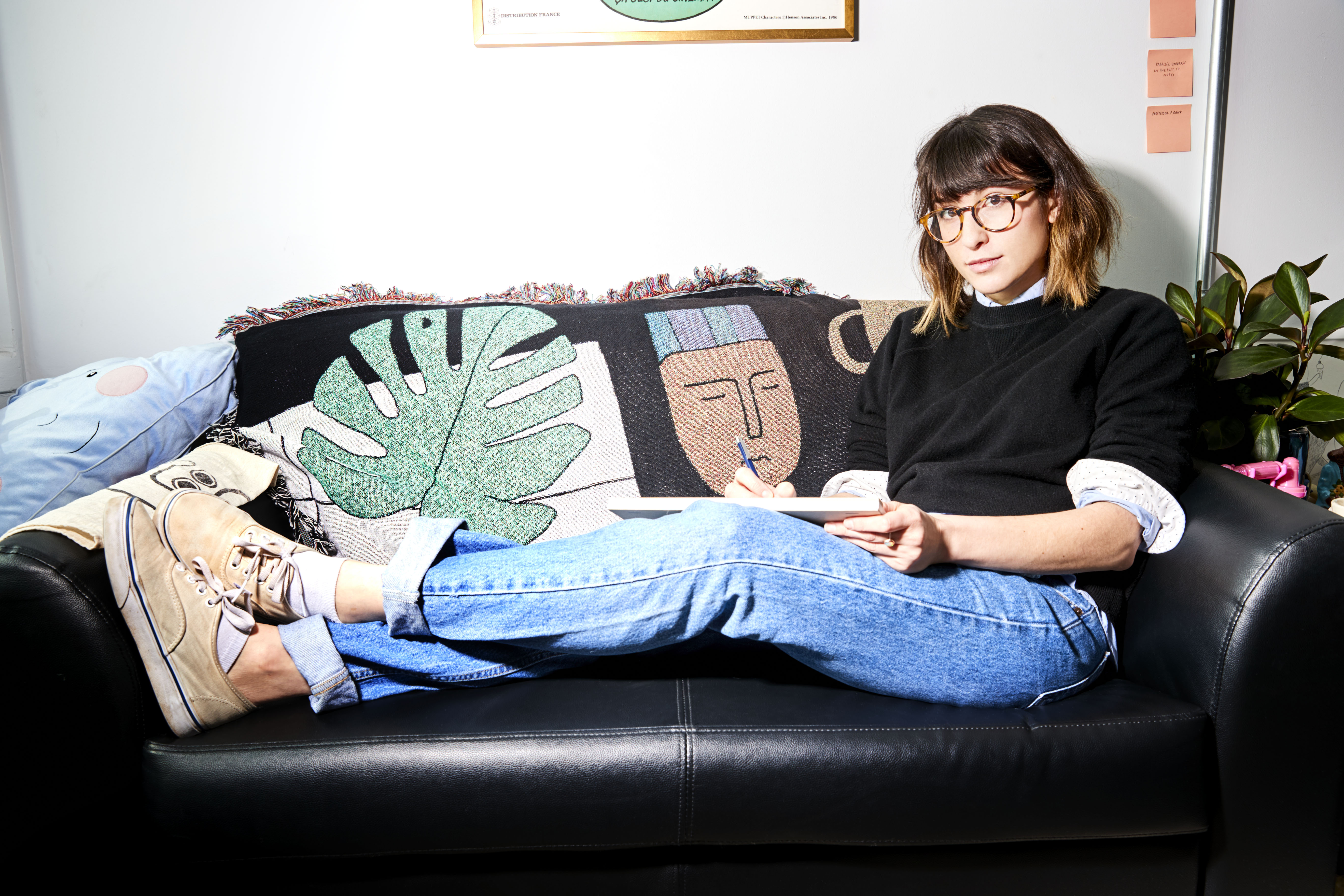
VICE: It’s hard to get an animated TV show made, and the stats show it’s even less likely if you’re a woman. How’d you do it?
Julia Pott: I moved to New York to be a commercial director, and was also making music videos, but the thing I was most excited about was short films, which are not very lucrative. Someone suggested I pitch a TV show because it’s like a series of short films with the same cast of characters. I loved the idea. I had been obsessed with Adventure Time in college, so I started making something with Cartoon Network in mind. I had never pitched a TV show before, and it turns out I way overcompensated. My pitch bible was 50 pages, full color. I found out later that you can do one page and talk about your idea eloquently and still get picked up.
When Summer Camp Island was picked up, it was incredibly validating. There’s a whole part of your brain where, as an artist, you’re thinking, “What am I going to do? What’s the long term goal? I like doing this, but how can I sustain it all the way through my career?” And the moment the show got greenlit, all of that went away. I hugged [Cartoon Network Chief Content Officer] Rob Sorcher and cried a little bit and then called my mum. I was probably doing it for my parents’ approval, as I think we do all art. It felt completely unreal.
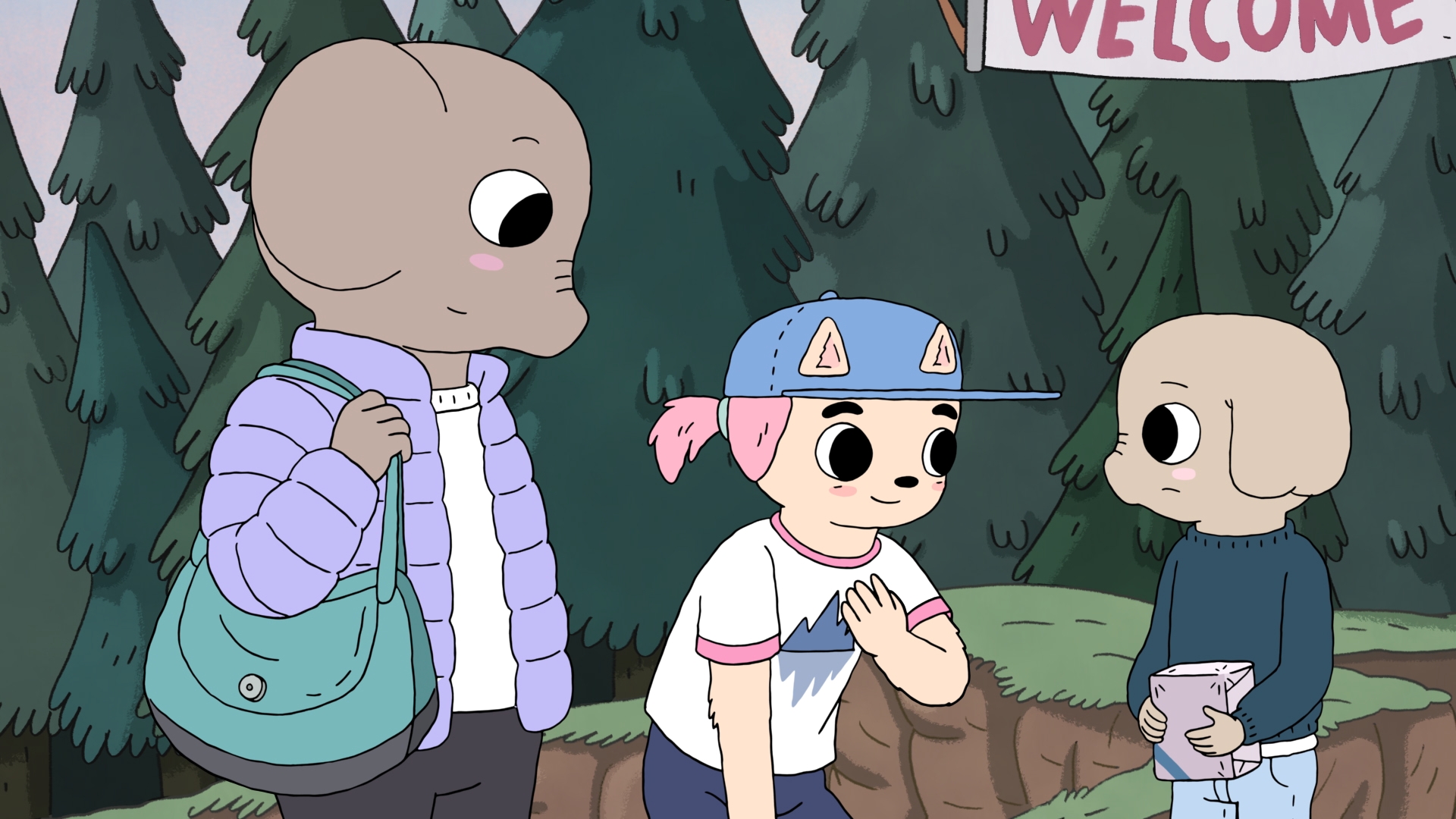
How did your experience on Adventure Time influence Summer Camp Island?
It was huge. I don’t think I would have a show right now without Adventure Time. It taught me how everything works. Watching [showrunner] Adam [Muto] work was incredible. I learned a lot from Adam about making the show personal and poetic, and not compromising my vision. I watched how Jack Pendarvis and Ken Osborne write outlines with so much nuance and layering, and how the artists storyboard add personal pieces of themselves into the story. Every step of the way, someone’s adding a new layer of what makes them, them. I think that’s what makes the story so rich. Everything I know is because of Adventure Time.
Cartoon Network’s first female showrunner is Steven Universe creator Rebecca Sugar, who also comes from Adventure Time. Do you have a relationship with her?
We’re on the same floor. We went to lunch once, when the show first got picked up. She gave me incredible advice. I was freaking out because we were getting a lot of notes, and it felt like my heart was breaking every time I got a new one. Coming from a place where I’d been making short films and I didn’t need to listen to feedback from anyone, I was being a little stubborn. It felt like I was being asked to compromise my vision.
She said, “You have to be creative with the way you address notes. Those notes are actually good, and if you see past the point where you’re upset that you’re getting them, they can transform the episode to be so much better and they give you a new perspective. Instead of approaching it with a battlefield mentality, you’re all on the same page, trying to make something good. You can take that note and make it into something you like while still addressing it.” She also told me to get a therapist, which is just good advice.
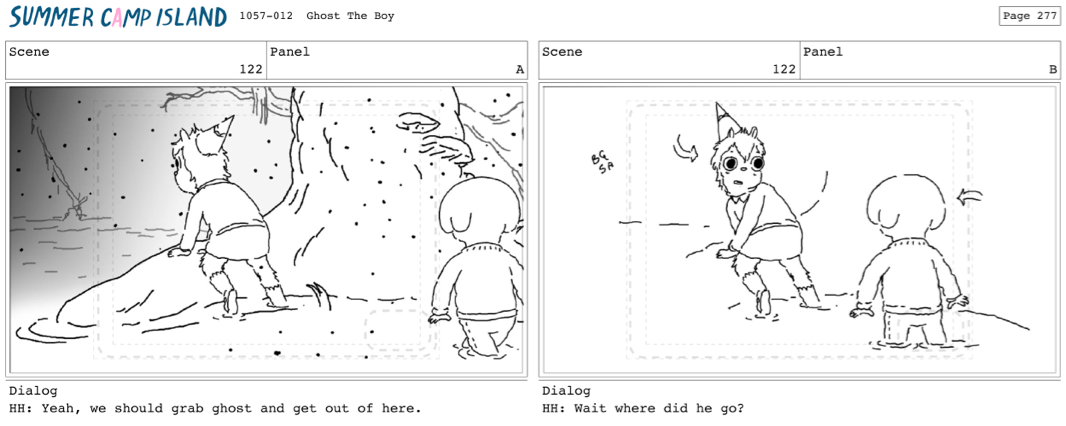
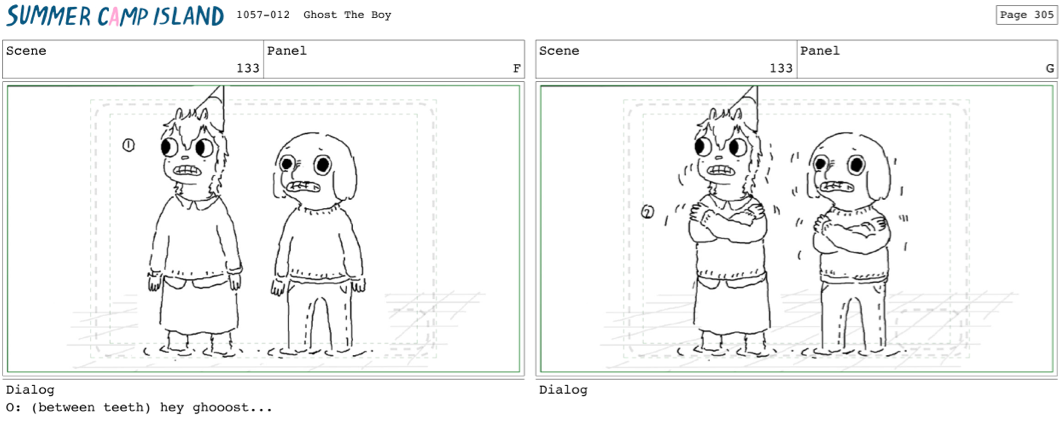
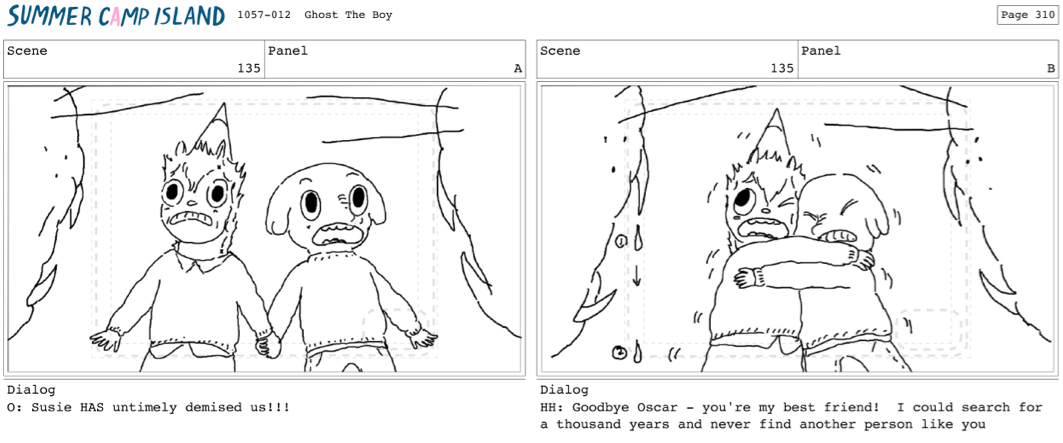
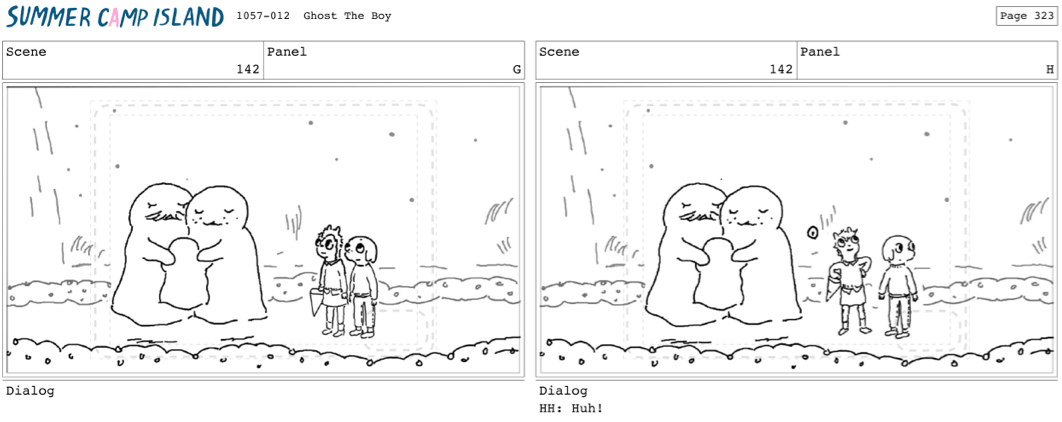
What was it about the culture at Adventure Time that uplifted and supported both of you?
A lot of people there are artists in their own right. Pen didn’t find those artists through professional animation or storyboarding networks, it was from comic books and illustration and people who were making their own work. That show cultivated so much autonomy over your work. It made you feel like anything was possible.
I was watching Adventure Time long before I worked on it. It was the first show I’d seen that made me feel like there was a space for me in television. I had never seen anything like it before. Adventure Time was so smart and clever and strange and artistic, and you could see the artists in it. I had never seen that before. I definitely want to carry that on with Summer Camp Island. Most of the story boarders on our crew are from Adventure Time or have a comic book background. Every pitch they bring me is like Christmas. It will be something completely new or unexpected. They’re excited because they’re working on it as if it’s their own. And it is.
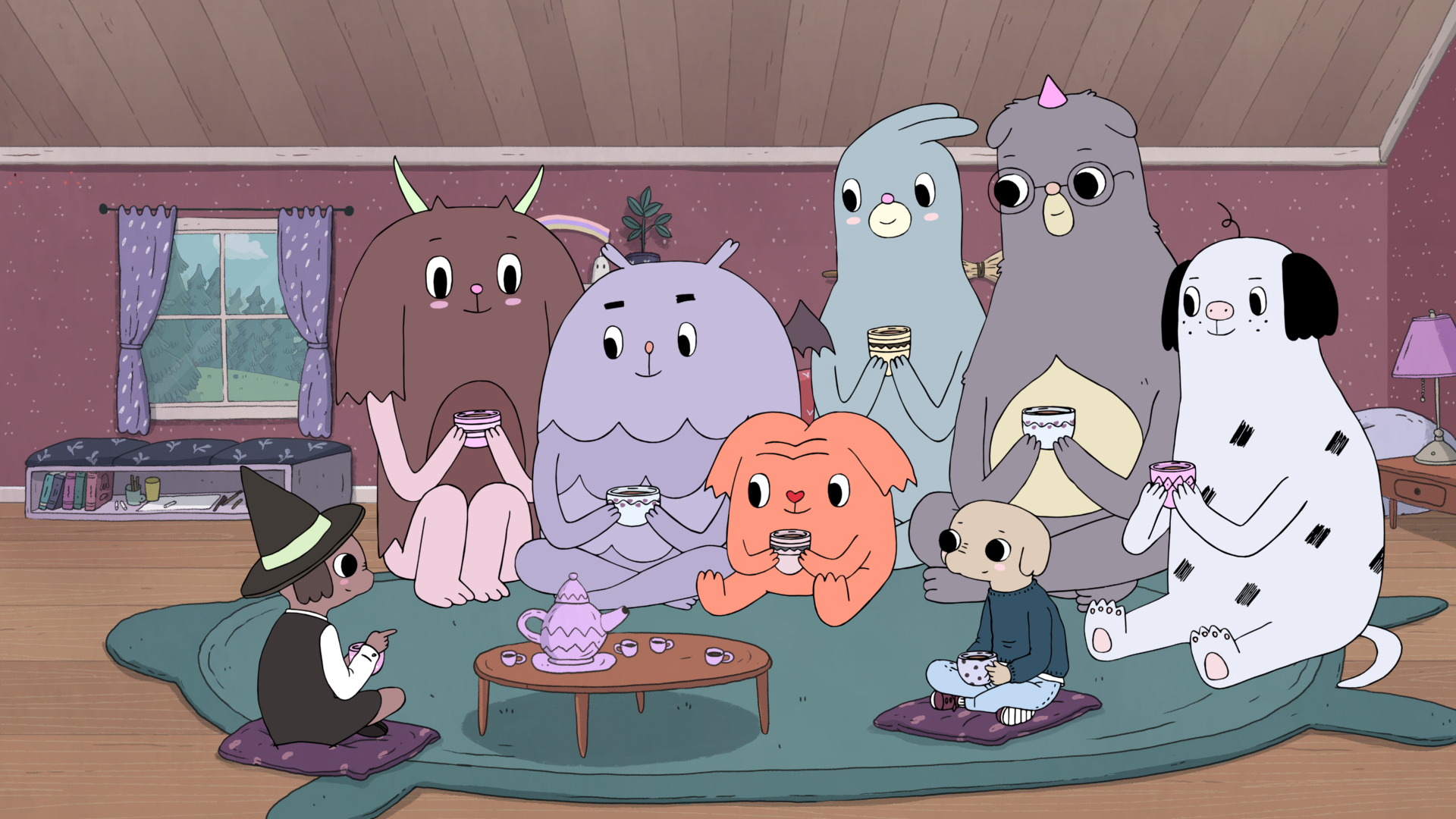
Friendship is a big theme in nearly every episode. How did you put your own experiences with friendship into the show?
I moved to New York at the same time as my friend Tom Brown. We met in the UK when I was around 23. Although we hadn’t been crazy close in England, we became super close in New York. We both needed that little piece of home. Oscar and Hedgehog’s friendship is loosely based on that friendship. I know that we love each other no matter what, and there’s nothing else there. We can be totally ourselves. He calls me out when I’m being an idiot and comes over within five minutes if I’m feeling sad. I’m under the impression that we’ll know each other forever.
Our friendship became a really good mirror for Oscar and Hedgehog’s because I wanted to match that feeling of unconditional love and understanding—that there is nothing else on the table, and it feels almost like you are siblings rather than friends. When we started the first season, the idea was that the finale will reveal that Oscar has a crush on Hedgehog. When we moved from pilot to series, and I don’t know if this is Adventure Time’s influence, we took away the romantic aspect. We wanted it to be more sustainable and more about unconditional love between two friends, rather than motivated by romance or wanting someone to like you back. We felt like that was a bad motivation.
Can you tell me about your approach to diversity, both on and off-screen? We wanted to create stories that normalize romance. When we first wrote “Feeling Spacey”—[in which a non-binary alien named Puddle professes their long-hidden love for another non-binary alien]—there was a conversation about it with the network about whether we were showing this in a positive light. If we’re going to have non-binary characters, is this the best episode we can present them in? Everyone had a really good discussion about it, and we never had any pushback on that stuff.
Whenever we’re writing something the discussion is, if it’s a male and female, can it be two men? Can it be two women? There have been discussions with monster relationships where we’ve paired a man and a woman—but wait actually these two women would be a better couple. And there’s never been pushback. It’s important for us to be aware of what we’re writing and what kinds of stories we can tell and how to make it more diverse from the outline onward.
Most of the heads of the department are women now, which is nice. It’s happened over a long time giving people opportunities lower down to move forward, and making sure that everyone’s getting an opportunity. It’s important when casting to shout out that you’re looking for a more diverse casting for certain roles. If you just put out a call, then a lot of the people who come back will just be white voices, so you have to call out that you want something different.
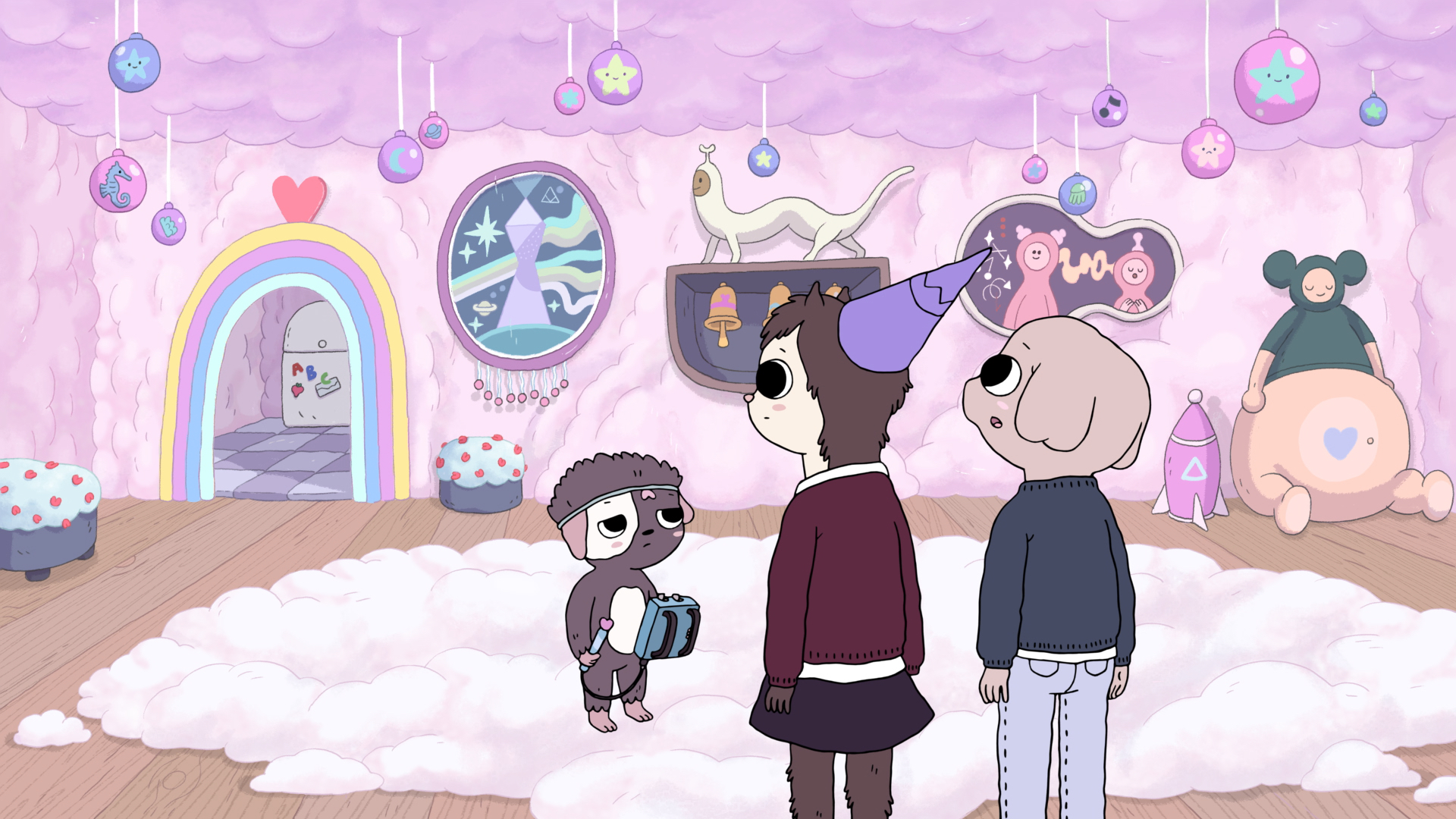
It seems like you put a lot of thought into how to characterize complex emotions. How do you approach that in the writing process?
Our inspiration for the characters was Peanuts, in that the kids seem so much wiser than their years. They’re always saying big philosophical things, but they’re in these tiny kids’ bodies. That was very appealing to me.
We have a Google Doc of starting points for episodes, and a whole section is just “Emotions to explore.” It’s very specific, and we add to it all the time. I’ll say, “I experienced this emotion the other day, and I’d really like to explore that.” It’s a balance of having kids deal with these things without it seeming too saccharine or pandering, but still having the message we want. We didn’t want it to turn into a learning show, but we want it to have substance and be about something. The episode has to be funny, with an extra layer of strangeness that relates to a feeling. The character needs to learn about the emotion through this strange logic that we’ve created.
I think a lot of people see themselves in Oscar because he’s so anxious. They feed all of their anxieties into Oscar and their more… secure-minded feelings into Hedgehog. Secure-minded feelings? Is that an expression? Everyone’s feeding their personalities into those two characters, which is why they come off as more adult. They’re not steering it toward kids, they’re just writing how they would say stuff.
Can you share a few of your favorite Easter Eggs hidden in the show?
I think it’s always more fun if the audience finds those themselves, but I will say we snuck in a lot of Britishisms into them. ‘Rubbish,’ ‘Hot Cross Buns’ and the phrase ‘shall I be Mother?’ to name a few. Also, the book titles that Jesse Balmer works into episodes are so hilarious and poetic.
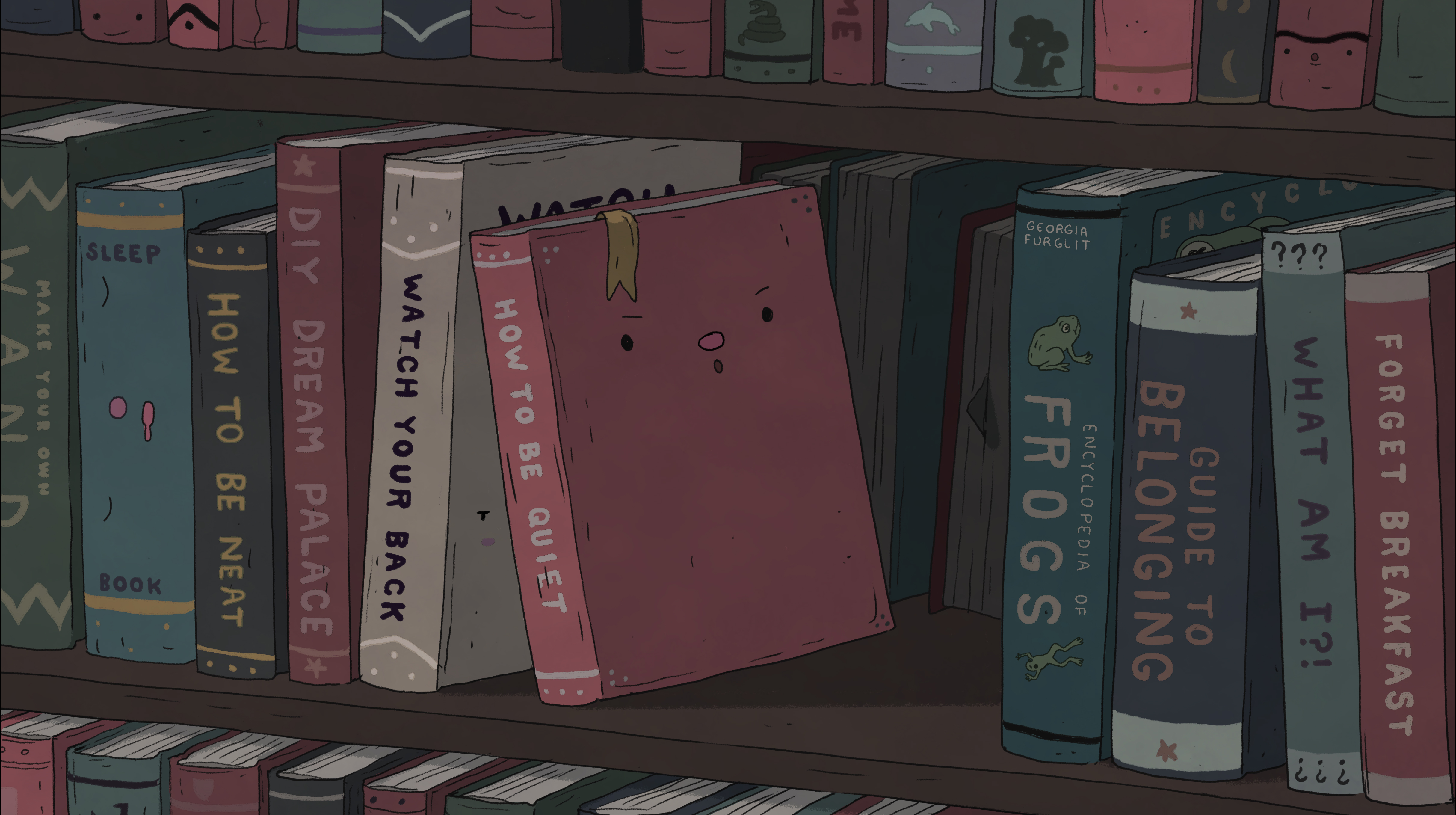
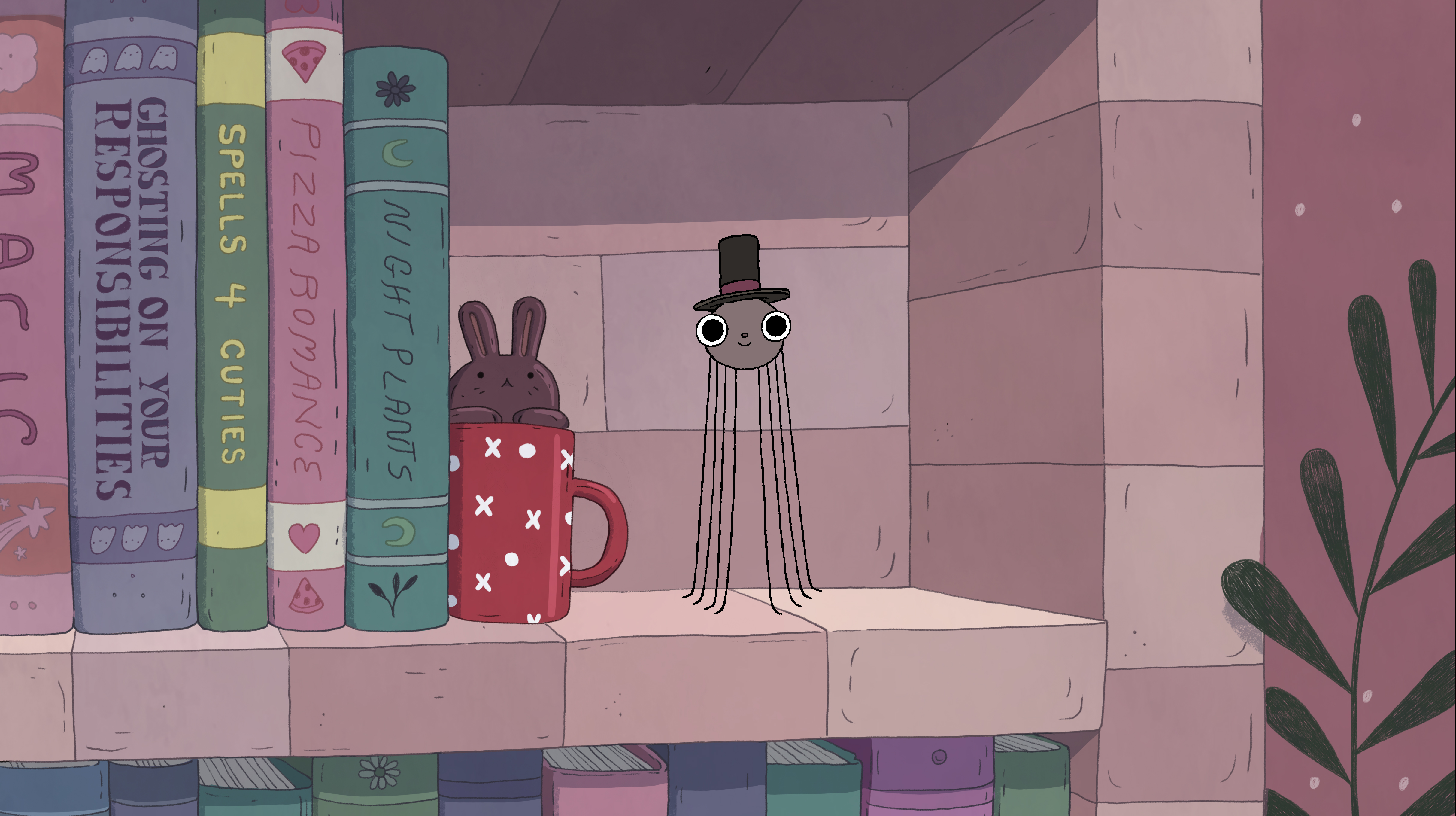
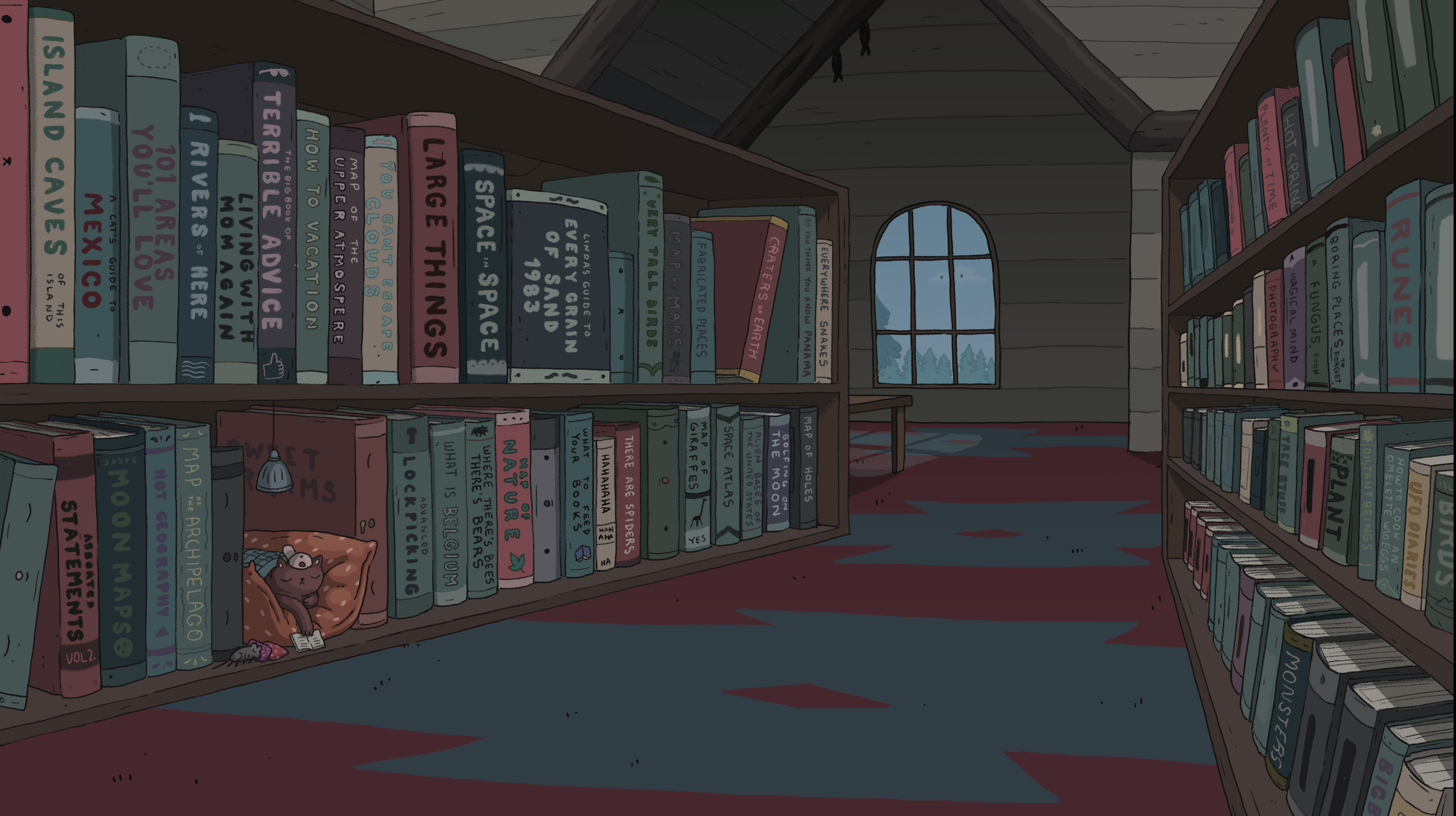
Watch Summer Camp Island on the Cartoon Network app and on the TV channel throughout summer.
Sign up for our newsletter to get the best of VICE delivered to your inbox daily.
Follow Beckett Mufson on Twitter and Instagram.
This article originally appeared on VICE US.